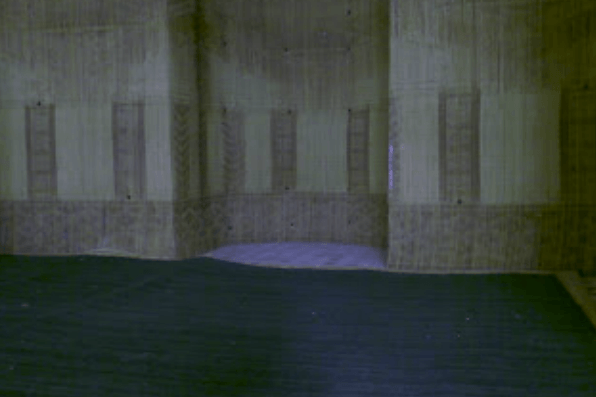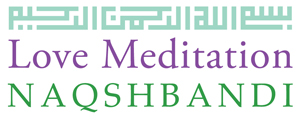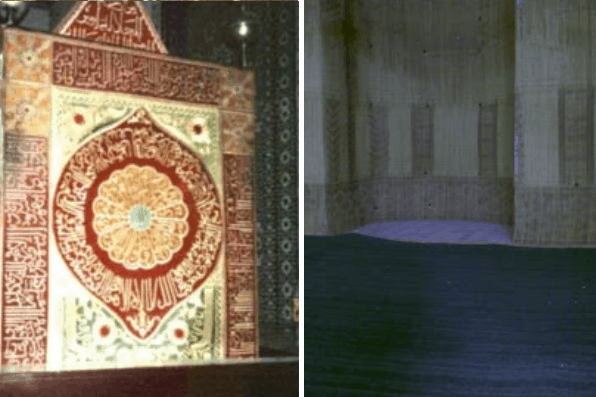Recitation of Salawat, especially in this blessed month of Rabi-ul Awwal
IMPORTANCE OF READING SALAWAT
The introduction to Dalaail u’l Khayraat explains the importance of love for the Holy Prophet(SWS) and of recitation of Salawat on him. The wording of one Hadith Sharif that is quoted is:
Hadrat Anas (RA) reported that Allah’s Prophetic Messenger said, “None of you truly believes until he loves me more than himself, his wealth, his son, his father, and all people”.
This Hadith has been reported in both Sahih al-Bukhari and Sahih Muslim with a slightly different wording.
If you invoke Allah’s blessings on the Holy Prophet once, Allah blesses you ten times, according to a Hadith narrated by Hadrat ‘Abdullah bin ‘Amr ibn al-‘Aas (RA) and reported in Sahih Muslim. According to another Hadith narrated by Sayyidina ‘Ali(RA) and reported by Imam Tirmidhi(RA), if you hear the name of the Holy Prophet Muhammad ibn ‘Abdullah mentioned and if you do not invoke Allah’s blessings on him, then you are counted among the bukhalaa (plural of bakheel, the miserly). As reciting Salawat on the Holy Prophet(SWS) is such a good and meritorious deed, Imam al-Jazuli(RA) perhaps decided to call his kitab of Salawat Dalaail u’l Khayraat (Proofs of Good Deeds).
WHY YOU SHOULD RECITE HOLY SALUTATIONS (SALAWAT) ON THE PROPHET (SWS)? – LABBAYK ALLAHUMMA LABBAYK
Allah Almighty commands us to go for Hajj, if we have the means, and when we are ready to go for Hajj, we say Labbayk (meaning: Here I am, ready to obey Your Command, O Allah). Allah also commands us in the Holy Qur’an to invoke blessings and salutations on the Holy Prophet and what a pleasant surprise it is to find a Salawat in Part 1 of Dalaail u’l Khayraat with the relevant verse (33:56) and the response of Labbayk as follows:
(In nal la_ha wa mala_ ikatahu_ yushalu_na alan nabiy ya_ ay yuhal lazina a_manu_ sal lu_ alaihi wa salimu_ taslima_)
Indeed, Allah and His angels shower blessings on the Prophet. O you who believe! Invoke (Allah’s) blessings on him and salute him with a worthy salutation. (Surah Al-Azhab, 33:56)
I am here and ready to obey You O Allah, my Lord Sustainer. May the blessings of Allah, the Kind, the Merciful, and the angels who are closest (to Allah ), and the Prophets, the Truthful, the martyrs and the pious and those of Your creation that glorify You, O Lord of the worlds, (may the blessings of all of them) be on Sayyidina Muhammad son of ‘Abdullah the Seal of the Prophets, the Master of the (Prophetic) Messengers (of Allah) and the Leader of the pious, and a (Prophetic) Messenger of the Lord of the worlds, the Witness who brought glad tidings and who calls people to You (O Allah) with Your permission, who is a Shining light, and peace be upon him.
 DALAIL AL-KHAYRAAT – THE MOST IMPORTANT BOOKS OF SALAWAT
DALAIL AL-KHAYRAAT – THE MOST IMPORTANT BOOKS OF SALAWAT
(Picture of the room where Imam Juzuli (RA) prayed and remained in Seclusion for 14 years-20 years, Fez, Morocco)
(delaail-al-Khayraat – download link- via naksibendi.org)
Dalaail u’l Khayraat (Proofs of Good Deeds) is a kitab (book) of Salawat (blessings) on our beloved Holy Prophet Sayyidina wa Mawlana Muhammad al-Mustafa (SWS) composed by Imam Muhammad bin Sulayman al-Jazuli of Morocco. He was a Shaykh in the Shazili tariqa (spiritual path) who traced his ancestry to Imam Hasan ibn ‘Ali , the noble Prophet’s grandson, and left his earthly existence in 870 A.H / 1465 C.E. He is considered to be one of the seven greatest Awliya’ Allah (Friends of Allah, sufi masters) of Morocco. Al-Habib ‘AbdAllah bin ‘Alawi bin Hasan al-‘Attas informs us in The Way of Bani ‘Alawi that Imam al-Jazuli had twelve thousand muridin (disciples). Seventy seven years after he passed ahead, his body was exhumed for re-burial in Marrakesh and it had not undergone any change. This is one of the miracles that has been recorded in books of history.
The full name of his kitab is Dalaail u’l Khayraat wa Shawaariq u’l Anwaar fee Zikri’s Salaati ‘ala’n Nabiyyi’l Mukhtaar (Proofs of Good Deeds and the Brilliant Burst of Sunshine in the Recitation of Blessings on the Chosen Prophet ). It is the most acclaimed, the most popular, and the most recited among books of salawaat on the beloved Prophet . Just as al-Muwatta of Imam Malik is the first major book of Hadith Sharif to be compiled, Dalaail u’l Khayraat is the first major book of Salawat. In it, Imam al-Jazuli presents to us as a gift a precious and spontaneous composition and recitation of Salawat that poured out directly from his heart. The recitation is obviously from memory as is the tradition of our ‘ulama’ (learned scholars) and the spontaneous composition is from the waaridaat (spiritual perceptions) that Allah poured into his heart as a reward for loving the Prophet . It does not contain all the Salawat that existed in his time because that would have taken many volumes. We can understand this better when we recite the many Salawat of just one Imam, the great grandson of the blessed Prophet himself, namely, Imam Zayn al-‘Abidin ‘Ali ibn Husayn ibn ‘Ali (38-95 A.H / 658-713 C.E) in his huge kitab of supplications to Allah titled As-Sahifa Sajjadiyyah (The Book of the Worshipper).
The mode of presentation of Imam al-Jazuli is all his own, musk-scented with the love of RasulAllah . The writing flows smooth and fast with an exhilarating pace. This kitab has caught the imagination of Muslims to such an extent that many ‘ulama’ have written whole books of explanation or commentary (Arabic: sharh) on it. One such sharh was written by al- ‘Allamah Mahdi Fasi titled Mataali‘ul Masarraat (The Dawns of Happiness), which has been translated into Urdu by al-‘Allamah Muhammad ‘Abdul Hakim Sharaf al-Qaadiri. These “shuruh” (plural of sharh) have been referred to, for example, by Imam Yusuf ibn Ismaʻil anNabhaani , another Shaykh in the Shazili tariqa, in his book Afdalus-Salawat (The Best of Blessings). The Dalaail has been translated into Turkish by Kara Dawud Efendi who also wrote a commentary on it. And it has also been translated into Urdu by Shaykh Pir Muhammad Karam Shah Saheb in the kitab Majmuʻah Wazaaif Ma‘a Dalaail u’l Khayraat (A Compendium of Regular Voluntary Invocations Together with Dalaail u’l Khayraat).
Another pleasing feature of Dalaail u’l Khayraat (Proofs of Good Deeds) is that its introduction contains Asma u’l Husna (the Most Beautiful Names of Allah ) as well as Asma u’n Nabi, (the Blessed Attributive names of the beloved Prophet Muhammad ) one of which is Dalil u’l Khayraat (Proof of Good Deeds). Isn’t that remarkable!
Dalaail u’l Khayraat is presented in eight parts. You are expected to commence recitation on Monday with the Introduction and Part One. Each part is to be recited one day of the week for ease of completion except that on Monday you complete the recitation of Part Eight as well. Each part takes about ten to twenty minutes to recite and with consistent recitation, the book can be completed in a week, and the following week you may start all over again. In this way, many a saalik (traveller on the spiritual path) has made Dalaail u’l Khayraat a weekly wird (regular voluntary invocation). And of course, at least one juz (part) of the Holy Qur’an is also to be recited every day.
The muhibbin (loving disciples) in Tariqa ash-Shaziliyyah have an annual recitation of the Dalaail in Toronto where it is recited in congregation in one sitting in about two hours. Alhamdu Lillah (All Praise is for Allah !). Shaytaan becomes helplessly weak when he encounters love for the Prophet (SWS).
Dalaail u’l Khayraat is normally printed in the ancient Muslim tradition where the text is printed in the middle and in wide borders on the sides can be found some other treasures, in this instance Hizb u’n Nasr, Hizb u’l Barr and Hizb u’l Bahr of Imam Abu’l Hasan Shazili, Hizb of Imam an-Nawawi, Hizb of Mulla ‘Ali al-Qaari, Hizb u’d Durril A‘laa of Shaykh u’l Akbar Muhyuddin ibn ‘Arabi, Hizb of Ustadh al-Bayyumi, As-Salaat u’l Mashishiyya of Imam Abdu’s Salaam bin Mashish , and Qasida al-Munfarija, among other awraad and azkaar (additional voluntary supplications to Allah ). Can Qasida al-Burda of Imam al-Busiri(RA) ever be left out? It naturally brings the kitab to a resounding close.
The impact of Dalaail u’l Khayraat on subsequent Muslim scholarship on the subject of salawaat has obviously been tremendous. One illustration suffices at this juncture. The Hizb u’l A‘zam of Hadrat Mulla ‘Ali al-Qaari , a great Hanafi ‘aalim (scholar), is in seven parts, one part to be recited one day of the week. In fulfillment of the teachings of the beloved Prophet Muhammad to recite more salawaat on Fridays, Friday’s recitation in his Hizb consists only of salawaat. And almost all of these salawaat naturally happen to be from Dalaail u’l Khayraat! (SubhanAllah! Glorified is Allah !). The language of salawaat is the language of the heart and it is based on love.
(Extract by An Appreciation by Siddiq Osman Noormuhammad, DALAAIL U’L KHAYRAAT of: IMAM AL-JAZULI (Rahmatullahi ‘alayh)
YOUTUBE VERSIONS OF THE DALAAIL AL-KHAYRAAT BY IMAM AL-JUZULI (RA) BELOW TO LISTEN TO:
Monday 8 (for completion)
Then you start again from Monday 1 Inshallah.




